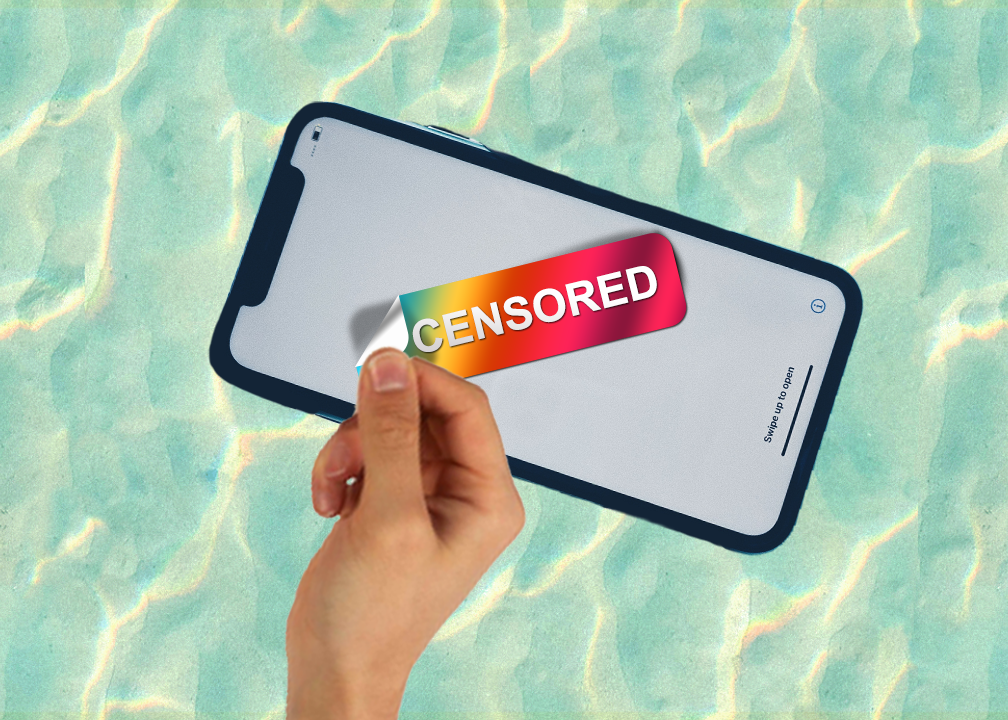The Texas social media law is dangerous
When the Instagram, WhatsApp and Facebook outage occurred on Oct. 4, USC students buzzed with frustrations. For international students who use WhatsApp as a primary communication method, this outage was isolating and uncomfortable. Students clicked the apps mindlessly for hours, hoping they would finally load after eight tries. Unfortunately, apps were inaccessible for hours and disrupted many people’s routines.
We rely on social media platforms for tidbits of both entertainment and information. For this reason, the new Texas law, which prohibits social media platforms from regulating users and misinformation, is dangerous and could potentially alter our daily lives in the same way Monday’s technological issues did.
On Sept. 9, Texas Gov. Greg Abbott signed House Bill 20 into law. This law mandates “social media platforms with over 50 million monthly users in the U.S.” to publish details about removed posts and suspended profiles twice each year.
Additionally, it bars social media platforms from banning Texan users because of their political viewpoints and requires an outlet for users to claim legal breaches. Essentially, Texas created this law to cater to the growing conservative sentiment social media sites silence their views, a claim that was only punctuated when Facebook and Twitter suspended former President Donald Trump last year.
Abbott wrote an opinion piece for The Washington Post titled “A new Texas law fights Big Tech censorship. Last week showed why we need it.” The Republican governor argues that The Wall Street Journal’s report on Facebook and a Federal Election Commission ruling on Twitter restricting the “Hunter Biden laptop story” warranted the law.
However, Abbott fails to realize his standpoint is erroneously partisan — everyone benefits from social media platforms filtering out misinformation. Abbott’s perspective is right-skewed, as evidenced by his allegation that the Hunter Biden story was unjustly censored.
In reality, details from this story were only “confirmed” by a supposed independent source from Politico this September, almost a year after the 2020 election. Choosing such an example highlights Abbott’s subjectivity.
Additionally, the first amendment only prohibits Congress from enacting laws that prohibit free speech; to claim that these platforms have violated the First Amendment’s free speech clause is a stretch.
Abbott and his allies also fail to consider that social media has become a medium for sharing and disseminating valuable information. With 42% of the world’s population using social media as of 2019, these platforms have become more than media for users to share selfies or pictures of their Sunday brunch.
The Jan. 6 insurrection exemplified how conspiracy theories and lies can spread so quickly on social media and radicalize people. The event pinpointed social media sites’ responsibility to not give platforms to users who propagate misinformation.
Not only was Trump banned from Facebook and Twitter, but so were more than 70,000 profiles with ties to QAnon. Youtube also took down videos from Trump’s account that appeared to instigate violence, and Facebook finally started to take down posts that used #StopTheSteal. The fact that these platforms did not intervene until the insurrection should serve as a wake-up call to social media content regulation.
We live in an age where it is incredibly easy to post misinformation online but difficult to spot it. Eighty six percent of adults get news from their social media account. Fallacies are presented as facts because there is no one there to monitor each and every tweet, Facebook status update or Instagram infographic for false information.
Misinformation actually keeps users engaged by creating echo chambers; therefore, social media platforms actually benefit from it and are less likely to step in. This Texas law is incredibly dangerous because it could perpetuate this negative cycle of echo chambers, thus leading to more and more misinformed people all across the globe, especially when it comes to politics, which excites users more.
For college students who use social media as a means of spreading information about their activist pursuits, organizations and such, it’s imperative social media companies filter out misinformation and dangerous users. USC depends on social media, such as Instagram, Facebook, Twitter and LinkedIn, to spread important information. The Daily Trojan itself uses such platforms to promote articles that hold valuable information for students. If misinformation permeates these sites, then these salient messages could be lost. We need social media regulation, for USC students and beyond.


